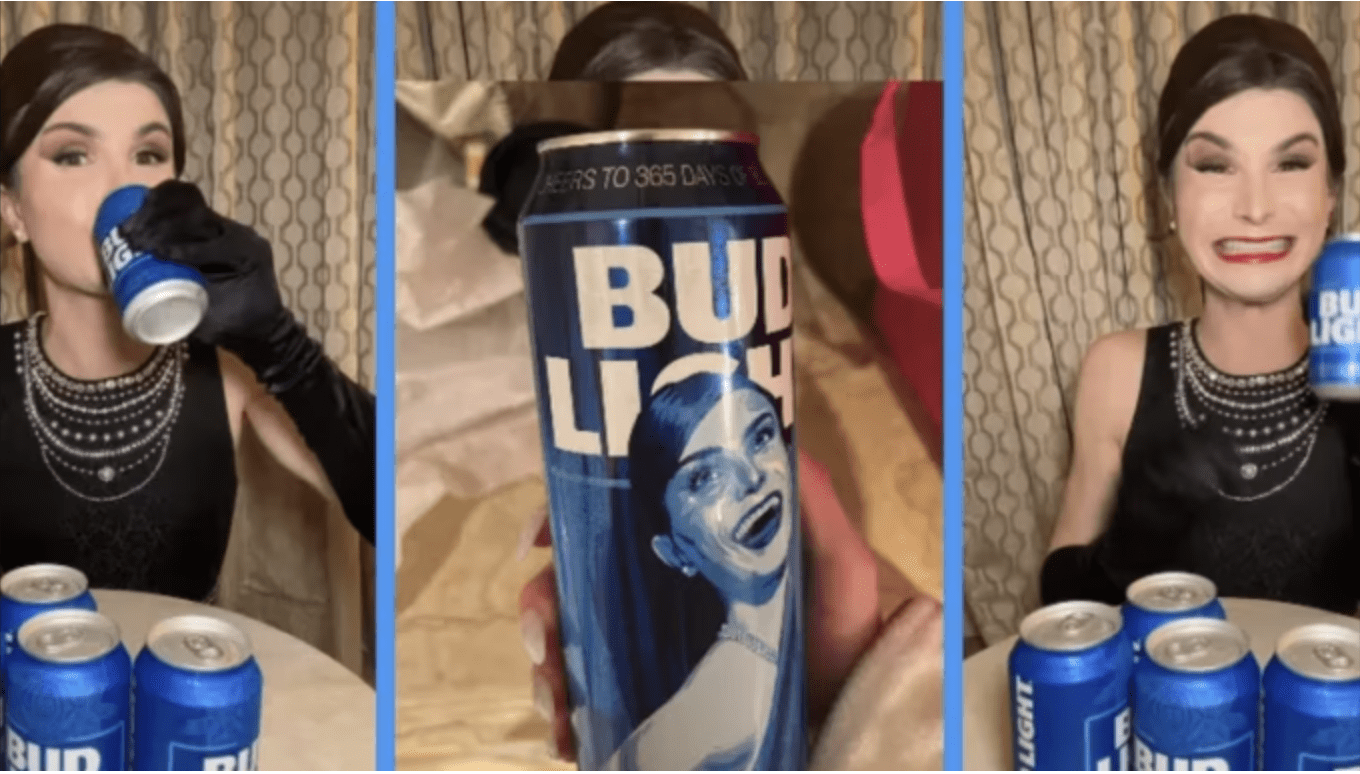Mises Institute – In perhaps one of the most unexpected and sudden shifts in consumer demand in recent years, sales of Bud Light have now fallen sizably for six weeks in a row, with no end in sight.
The New York Post reported on Monday that “Sales of the US’s No. 1 beer were down 24.6% for the week ended May 13 compared to a year ago — slightly worse than the 23.6% dip they suffered a week earlier.”
But it’s not just Bud Light. Sentiment has turned against Bud Light parent Anheuser-Busch Inbev (AB Inbev) to the point that other brands at the company are seeing declining sales as well.
Budweiser, Michelob Ultra, Natural Light, and Busch Light all experienced declines during the same period. AB Inbev has lost an “astonishing” $15.7 billion in value over the past six weeks.
Not surprisingly, Bud Light is also losing market share as former Bud Light consumers turn to competitors. Miller Light and Coors Light (both brewed by MolsonCoors) have seen a surge in sales as have independent brands Yuengling and Pabst Blue Ribbon.
Why have so many consumers changed their mind? It appears the shift stems from an ill-fated ad campaign initiated by Bud Light executives in an attempt to pander to “transgender” activists and their ideological allies.
In early April, Bud Light promoted social media posts with transvestite Dylan Mulvaney—who claims to be a woman—as a spokesperson. The post featured a newly issued can featuring an image of Mulvaney in commemoration of Mulvaney’s alleged “365 days of girlhood.”
The response from many ordinary observers on Twitter was less than positive, with many denouncing AB Inbev for pushing a highly divisive politically charged ad campaign that many existing Bud Light drinkers found insulting.
Several Conservative media outlets began to promote the boycott as well, and the boycott caught on among both well-known conservative pundits and among a larger number of users on social media platforms. Soon thereafter, sales of Bug Light began to fall quickly.
The large numbers abandoning the brand, however, are too large to blame on just a small minority of right-wing political activists. Rather, Bud Light has apparently damaged its image with a large number of consumers, most of whom are likely uninterested in activism, but simply prefer a beer that is less political.
At first, it was unclear that the boycott would have any discernible affect, given the sheer number of other beer brands under the AB Inbev umbrella. However, it soon became clear that the company was feeling the pinch. Two Bud Light executives behind the Mulvaney campaign were put on a “leave of absence” (i.e., fired).
The corporation launched new ad campaigns in an attempt to win back consumers who had apparently lost interest in the company’s products. These new ads were nostalgic and hyper “patriotic” in character, and were transparently devised to appeal to former core consumers. These efforts, however, were mocked as insincere in social media.
As the latest sales numbers suggest, however, these efforts have apparently not been working. A new report from Beer Business Daily concludes “We’ve never seen such a dramatic shift in national share in such a short period of time,” and that if the boycott continues, Bud Light risks losing its position as the nation’s best selling beer.
If Bud Light’s decline continues, it will be because company executives committed the most basic sin of entrepreneurship and marketing: they were apparently more interested in their own preferences rather than the preferences of their customers.
Specifically, it seems likely that the Bud Light/Mulvaney campaign was an attempt on the part of corporate executives to cater to certain ideological groups—groups favored by wealthy, elite-college-educated managers—rather than to the company’s largely middle-class, middle-Americans customers.
For example, the executive in charge of the campaign, Alissa Heinerscheid, attended a $60,000 per year private school (the Groton School) in her youth, and went on to get degrees in English and Literature from Harvard.
She also obtained an MBA through the Wharton School. This is not someone who would naturally have any common cause or innate understanding of Bud Light’s customer base.
Denouncing the Bud Light’s current branding as “fratty” and “out of touch,” Heinerscheid decided that Bud Light should cease pursuing its existing clientele in favor of partnerships with transgender activists.
There is no doubt that this idea would seem attractive to someone of Heinerschied’s background. Yet, it’s difficult to see how Bud Light could improve its financial situation by enthusiastically partnering with a highly divisive figure such as Mulvaney.



